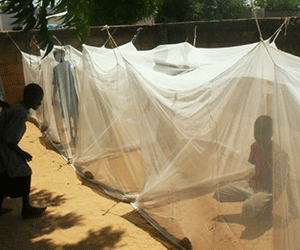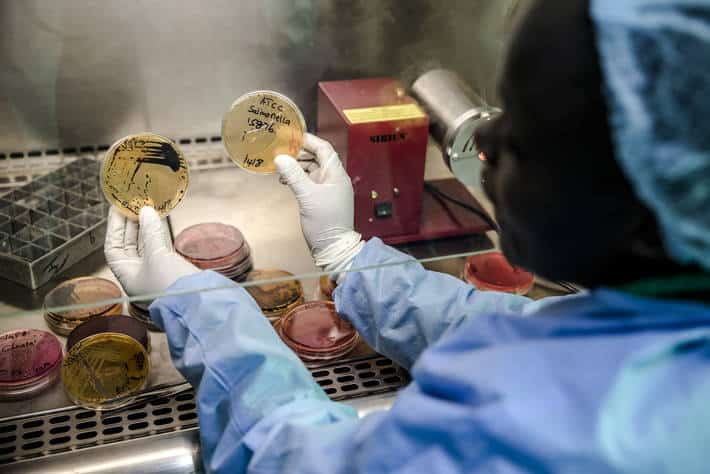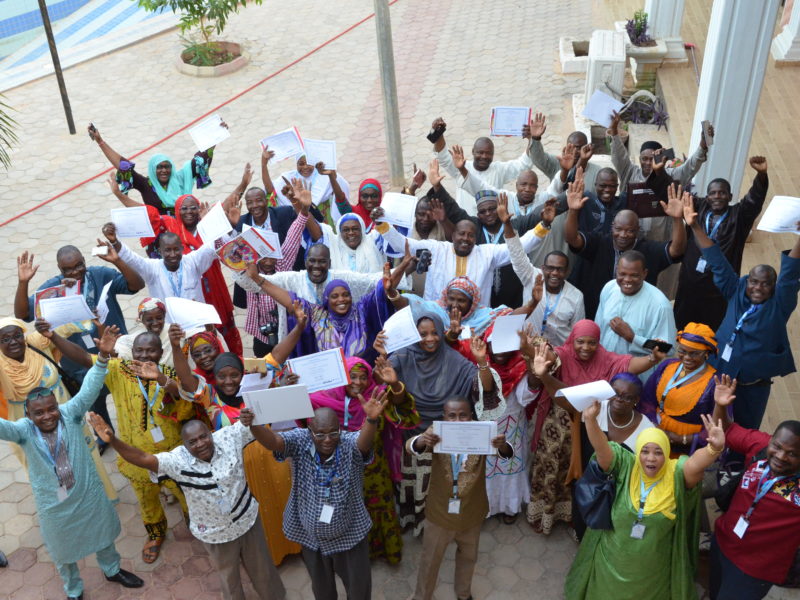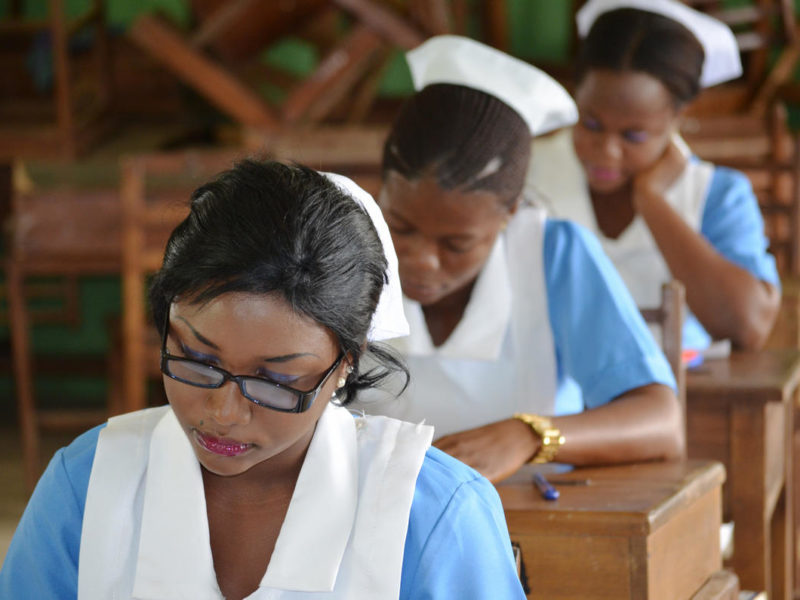As NetWorks strives to achieve universal coverage with long-lasting insecticide-treated nets across Senegal, perhaps no population has proved a bigger challenge than the omnipresent, though frequently ignored, talibés, or Koranic students. Ranging in age from five to 18 years, the talibés study and frequently live in daaras (Koranic schools), far from their families and, often, under poor conditions.
In an effort to address this group which had never been targeted by malaria prevention campaigns, in January 2012 NetWorks, a USAID-funded malaria prevention project, teamed up with religious leaders and local women’s groups to share malaria prevention messages with talibés living in the 427 daaras around the city of Touba, in central Senegal.
Through a partnership with the National Malaria Control Program, NetWorks distributed mosquito nets to the daaras and demonstrated proper net use.
But it quickly became evident that a straightforward campaign was insufficient. The nets were getting holes as the talibés were having a difficult time caring for the nets.
Living away from their parents and older relatives, talibés struggle to meet their basic needs, including feeding, washing, and cleaning. Thus it came as little surprise that they were unable to properly care for their mosquito nets, care that is essential if the nets are to be useful in the daaras in the fight against malaria.
Furthermore, the living conditions in the daaras proved especially challenging as it is not uncommon for as many as 15 to 20 talibés to sleep in one room, rooms that are too small for so many nets, while a single net cannot cover so many children. NetWorks also discovered that in some daaras, talibés use mosquito nets as extra mats or even blankets, wrapping themselves in the net to stay warm while sleeping.
In response, NetWorks trained almost 300 local women to take care of the talibés and their nets in the daaras. Known as bajjans yu goor (bajjan means auntie in Wolof), NetWorks provided specific training to the “aunties” on mosquito net usage, repair for damaged nets and washing techniques, and the necessary materials to wash and repair nets.
The bajjans are part of a Senegalese Ministry of Health and Prevention program that promotes community health across the country by training well-respected women in urban and rural communities as community health educators.
The communities have been supportive of the efforts of the bajjans, providing both financial and material contributions to the women who have responded with public commitments to regularly visit the daaras and check on their nets.
NetWorks also trained the Koranic teachers at the daaras about the importance of mosquito nets. The “Trois Toutes” (“Three Alls”) counseling cards on net use were translated from the standard French into Wolof, and written using Arabic script (called Wolofol), so that all talibés could benefit from the messages. Many daara leaders noted that this effort was the first health communication campaign that specifically addressed their needs, in their “language of work.”
NetWorks is slowly beginning to target net distributions to daaras in other parts of Senegal. As further strategies are developed for this special population, NetWorks will continue to work with community members and the bajjans to adapt plans to ensure that the unique needs of talibés in daaras are met in malaria prevention campaigns.
Learn more about NetWorks.





